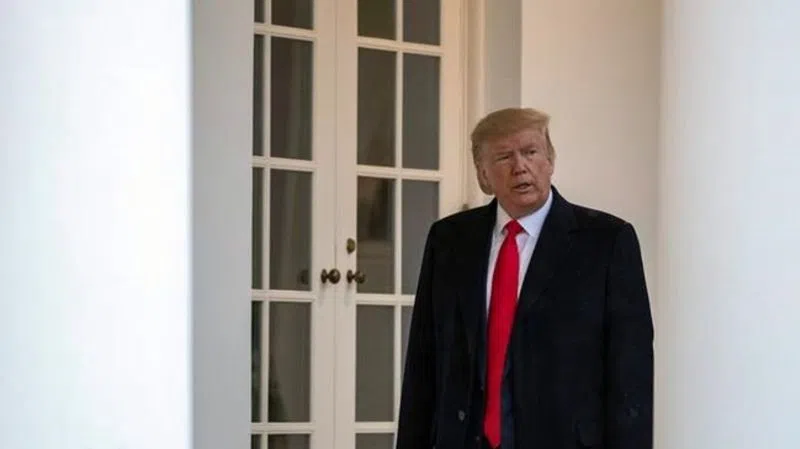
Survey finds persistent Canadian respect for U.S., wide disdain for Trump
WASHINGTON — Canadian attitudes towards President Donald Trump and his controversial approach to international relations appeared to soften slightly in the weeks after U.S. tariffs on steel and aluminum exports from north of the border were lifted last spring, a new global survey suggests.
But overall confidence in Trump’s handling of world affairs remained low in Canada and elsewhere beyond the borders of the United States, according to the results of the Pew Research Center’s annual Global Attitudes Survey, released Wednesday.
The survey, conducted by Gallup last year between late May and early July, showed a modest increase in the percentage of Canadian respondents with confidence in the president to “do the right thing regarding world affairs”: 28 per cent, up from 25 per cent in 2018 and just 22 per cent the year before.
That was well before two of the most earth-shaking developments of the Trump presidency: last month’s impeachment vote in the House of Representatives and the U.S. drone strike last week that killed Gen. Qassem Soleimani, a top Iranian military leader whose death has triggered widespread fury and retaliatory threats in the Middle East.
